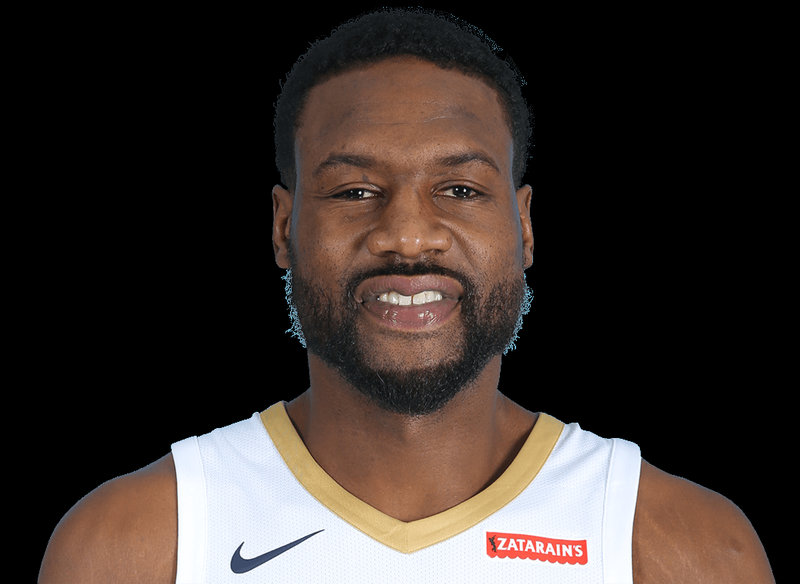Introduction
What is seldom discussed is the overall defensive IQ of Tony Allen. It seems fairly obvious to me that many fans overlook the intelligence he plays with on the defensive end. While Alan is often lauded for his tenacity (and rightfully so), the mention of his high defensive IQ seems to get lost in the conversation.
The Defensive Prowess of Tony Allen
A 14-year NBA veteran, Tony Allen made a name for himself as one of the league’s best and most versatile perimeter defenders. He played multiple seasons with the Memphis Grizzlies, where he was given the nickname “The Grindfather.” Throughout several of Allen’s prime years, he logged an impressive defensive rating of 98.9, which indicates an ability to slow down and limit a team’s scoring opportunities.
Moreover, his on-ball defense was extremely effective, as shown by his capacity to guard many positions. Allen restricted opponents to hitting just 38% of their shots during the 2011 NBA Playoffs, when the pressure was on and the stakes were high. Allen disrupted passing lanes better than almost anybody else in the league. Of course, this also required him to do something most defenders don’t do: think ahead and anticipate what the opponent is going to do next.
Why is Tony Allen’s Overall Defensive IQ Rarely Discussed?
One might wonder, why isn’t Tony Allen’s overall defensive IQ talked about more in the mainstream? There are several reasons for this. For one, when it comes to metrics, they just don’t shine as much. It’s not like there’s a Defensiveness Points Per Game stat hanging out there. There are Defensive Player of the Year awards and a few other shiny things, but most of us aren’t exactly rolling in defensive intelligence tokens.
In addition, Allen did not employ a particularly showy style of defense. His effectiveness came from a strategic positioning, rather than from what might be termed highlight-reel plays. While the discussions surrounding defensive players often gravitate toward the shot-blocking and steal-dishing prowess of people like Dwight Howard and Kawhi Leonard, Allen was a player who shined for the discipline and intelligence that he brought to the game. He had a high defensive IQ, which, believe it or not, is a considerable advantage. Allen knew too much about offensive schemes and principles to not be one or two steps ahead of an offense.
Statistics Supporting His Defensive IQ
Acknowledging how he affected the game on defense, one can note that Allen made the NBA All-Defensive First Team more than once (2009, 2010, and 2011). He was also consistently near the top of the leaderboard in defensive win shares, which is a stat that measures how good a player is at playing defense.
- 5.1 defensive win shares in 2011.
- How well a player defends against the opposing offense, measured by points allowed per 100 possessions. A player’s defensive rating estimates how many points he allowed per 100 defensive possessions while he was on the court. Defensive rating: 98.9 in 2013.
- Percentage of field goals made by opponents under guard: 39.5% in 2012.
In addition, Allen had a large say in the way the team played defense, and his influence was considerable on the Grizzlies’ “Grit and Grind” style. This not-very-pretty-but-terribly-effective way of playing basketball enabled Memphis to transform itself into a top 10 defensive team for much of Allen’s tenure.
The Importance of Defensive IQ in Today’s Game
At present, the NBA is a landscape where team defensive intelligence can be a key differentiator. For the past few years, franchises have been clamoring for not just physically talented players but also for guys who can think the game—in terms of both offense and defense. But most teams surely won’t mind if their trade acquisitions and draftees also happen to be part of the athletic gene pool. The basic premise here is that if one has half a chance, one should draft or trade for someone who can stop the other team from scoring.
As a result, media recognition may not come Allen’s way, but what does garner attention from courtside fans and from players and coaches in the obfuscating sidelines is his impact on business performance on the court. Teams are starting to realize that with strong defense, winning streaks usually follow, and with those wins, playoff success just might be on the horizon.
Conclusion
Why is Tony Allen’s overall defensive IQ hardly ever talked about? It’s a combination of market forces and the way we generally discuss sports. But whatever the reasons, it adds up to a failure to recognize—as Allen himself has been forced to do—that he has common cause with similarly renowned defenders such as Ron Artest and Gary Payton. There is, of course, a reason I’m writing this. Better, I’m hoping: this Uncanny Valley excursion into the gap between right way and possible way with the ball on defense.
Explore More on us
Discover insightful blogs on our Blogging Space, check our SoloStat Score Explanation, and learn more about NBA All-Defensive Team.


